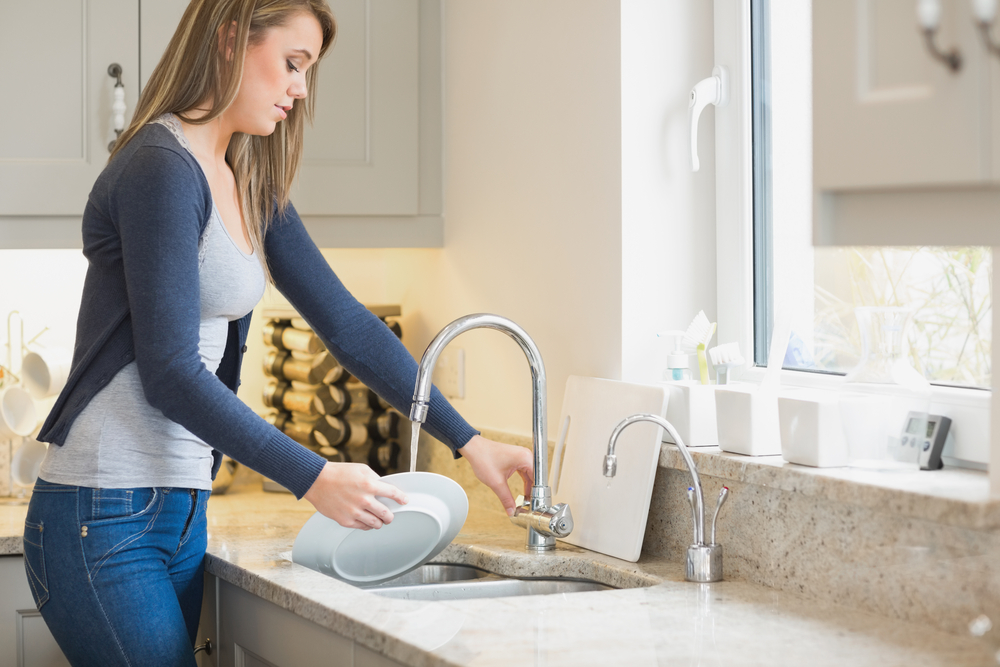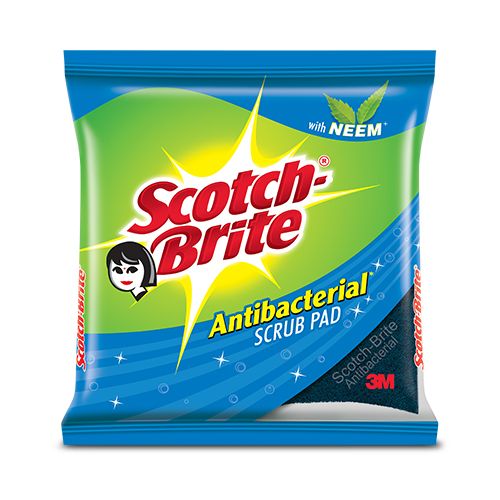
The Kitchen is the heart of every home. No doubt about it! As soon as you finish cooking breakfast and cleaning up the kitchen, it is time to think about lunch. By the time you have completed this chore, you have to start preparations to make those hot fresh snacks for your kids who will soon be coming back from school. In short, this is the liveliest part of the home. However, this can also be part of your house inviting dangers! A kitchen may appear perfectly clean, yet it can be tainted with a lot of microbes that can potentially cause diseases. So, it’s important not only to wash your hands but also to clean kitchen surfaces and cooking utensils to prevent the spread of infection-causing bacteria.
How to do this successfully? Well, cleaning and disinfecting are two procedures that work hand in hand to keep your kitchen safe from these disease-causing microbes. While cleaning effectively gets rid of grease, food residues, and dirt, disinfecting kills the disease-causing germs.
How Do Germs Spread?
Any kitchen utensil can become contaminated by direct contact with contaminated people, food, pets, or other environmental sources. No matter how clean your kitchen looks, germs can thrive on dishes and kitchen surfaces. Cross-contamination is the major cause of germs spreading in the kitchen.
- The first and foremost “equipment” that can potentially spread germs in the kitchen is the human hand. Improper cleaning of hand while handling high-risk food like meat can lead to bacteria being spread in dishes, cooking utensils, and other ingredients via cross-contamination.
- Bacteria on a cutting board can multiply to twice the number within 10 minutes of use.
- Your scrubber may carry leftover particles of food which may spread germs in all your dishes.
Cleaning Your Dishes and Cooking Utensils
Thorough cleaning of all items with which your food comes in contact, like dishes and cooking utensils, is extremely crucial to prevent the spreading of germs. You can easily do this by means of dishwash bars/ liquids and using antibacterial scrubbers like Scotch-Brite Antibacterial scrub pad. Rinsing the utensils with hot water will enhance the result. You can use antibacterial Dishwash and Scotch-Brite Antibacterial Scrub pad to clean knives, cutlery, and utensils.
Disinfect Your Kitchen Work Surfaces
Immovable or big kitchen work surfaces like kitchen slabs are not as easy to clean as the utensils. You can clean kitchen surfaces with hot soapy water after cooking. This will help to bring down the chances of cross-contamination to a great extent.
Disinfect Your Kitchen Sink
When it comes to cleaning the kitchen, people tend to overlook one of the dirtiest parts of the kitchen- the kitchen sink. In fact, the kitchen sink is often more germ-ridden than your toilet seat. Therefore, make sure you are giving proper attention and care to disinfect the kitchen sink. For this,
- Use Scotch-Brite Scrubbers or Sink Brushes to remove water spots, soap and food deposits, food stains, rust, etc.
- Rubbing with baking soda will help to remove the stains from the sink.
- The amalgamation of lemon and powdered Borax is also excellent to remove spots from the stainless-steel sink. Vinegar is also considered an excellent stain remover.
- Make sure the sink is clog-free. For this,
- On a regular basis, pour baking soda with warm water down the drain.
- After finishing the kitchen chores, pour 1 cup of hot water into the drain. After one minute dispense 1 cup of (preferably undiluted) chlorine bleach into the drain. Let it stay like that for the entire night. Do this once a week. This has both sanitizing and odor-free effect on your sink. Moreover, it will also help keep the sink clog-free.
How To Prevent Dishes And Utensils Being A Source Of Germs In Your Kitchen?
Scrub It With Scotch-Brite Anti Bacterial Scrub Pad (Your Secret Weapon To Keep Your Kitchen Utensils Clean)
Cross-contamination more often happens through kitchen tools. The most common kitchen tools which usually bring about cross-contamination are work surfaces, knives, and cutting boards. The prevention of cross-contamination is only possible by strictly following these cleanliness regimes:
- Wash the knife, cutting boards, and utensils thoroughly. Use an effective tool like Scotch-Brite Anti-Bacterial Scrub Pad.
- Using a good scrubber like Scotch-Brite Antibacterial Scrub pad while washing will help to remove traces of food (where the microbes that cause food poisoning dwell) from the utensils.
Scotch-Brite Anti Bacterial Scrub Pad with Neem Fragrance is a unique scrub pad fortified with an anti-bacterial formula that prevents bacteria from growing on the pad.

Top Tips For Keeping Your Kitchen Utensils Hygienically Clean
-
- Wooden chopping boards should be replaced regularly as germs thrive on them.
- Kitchen counters should be wiped with food-safe disinfectant before and after use.
- Clean the utensils properly with Scotch-Brite Antibacterial Scrub Pad after each use.
-
- Observable food debris should be cleared by means of the scrubber and hot soapy water from crevices, recesses, tight areas, and the washable parts of complex appliances, such as food processors, blenders, and eggbeaters. After this, they should be rinsed with plenty of water.
[fc id=’6′ type=’popup’ align=’inline’] [/fc]
[/fc]
